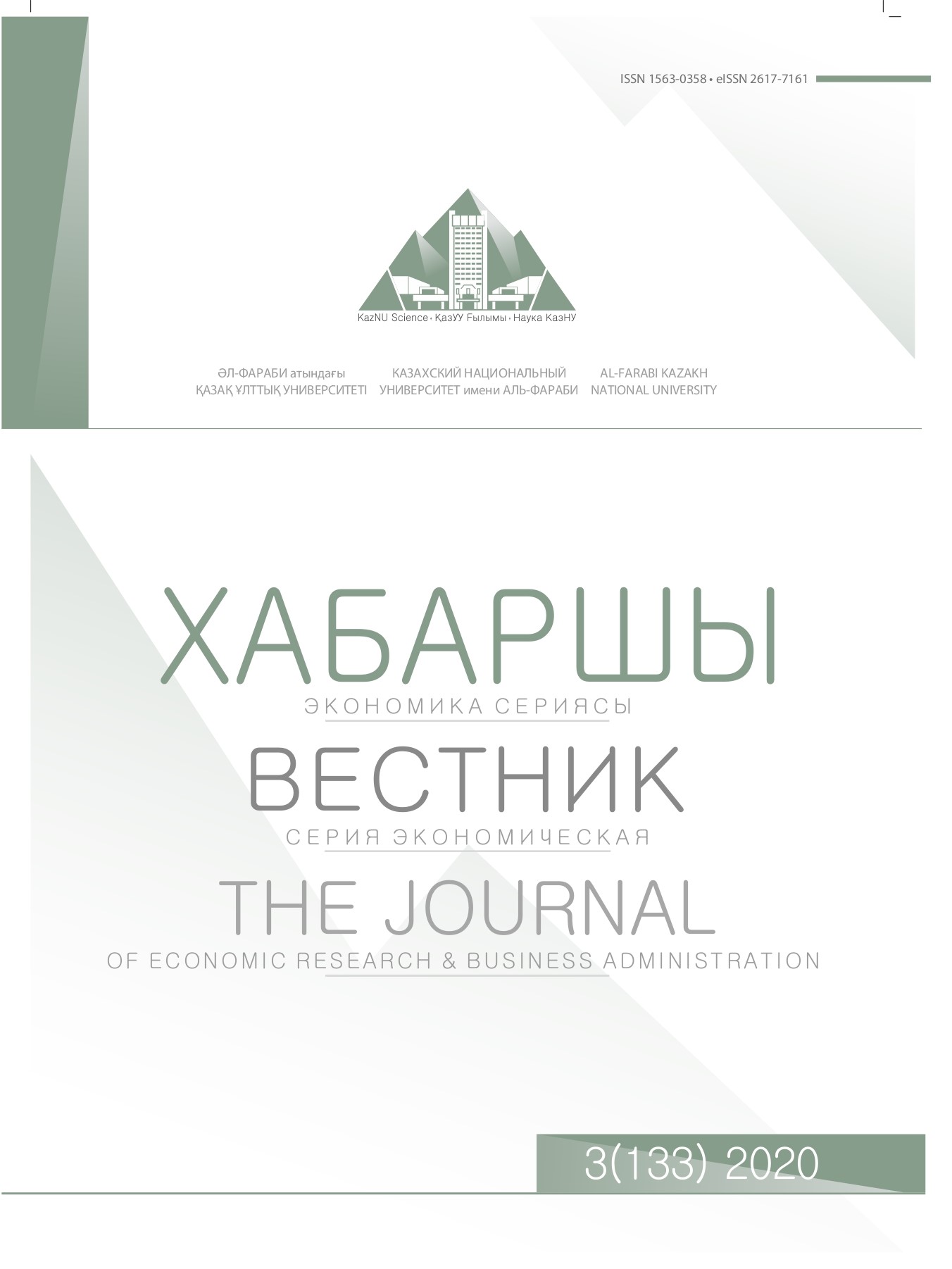An empirical analysis of globalization, oil receipts and health expenditure in Nigeria
DOI:
https://doi.org/10.26577/be.2020.v133.i3.10Abstract
This study examined the effect of globalisation and oil revenue on health expenditure in Nigeria. The
study used annual time series data spanning from 1980 to 2018. Unit root test was used to check the
stationary level of the variables and Unrestricted Error Correction Model (UECM) and Dynamic Ordinary
Least Square (DOLS) were used to estimate the model. The dependent variable was health expenditure
while the explanatory variables were globalisation, oil revenue, health care price, per capita income,
life expectancy, mortality rate urbanization and corruption. The result showed that oil receipt had a long
run and positive impact on health expenditure in Nigeria. However, globalisation had a negative and
significant impact in the long-run though not significant in the short run. The implication is that both oil
revenue and globalisation are still very important variables influencing health expenditure in Nigeria. It
is recommended that government should increase allocation to the health sector from oil fiscal revenue
so as to improve access to health care services in Nigeria. Also, the government should work on how the
country can benefit from globalisation through more export and less of import.













